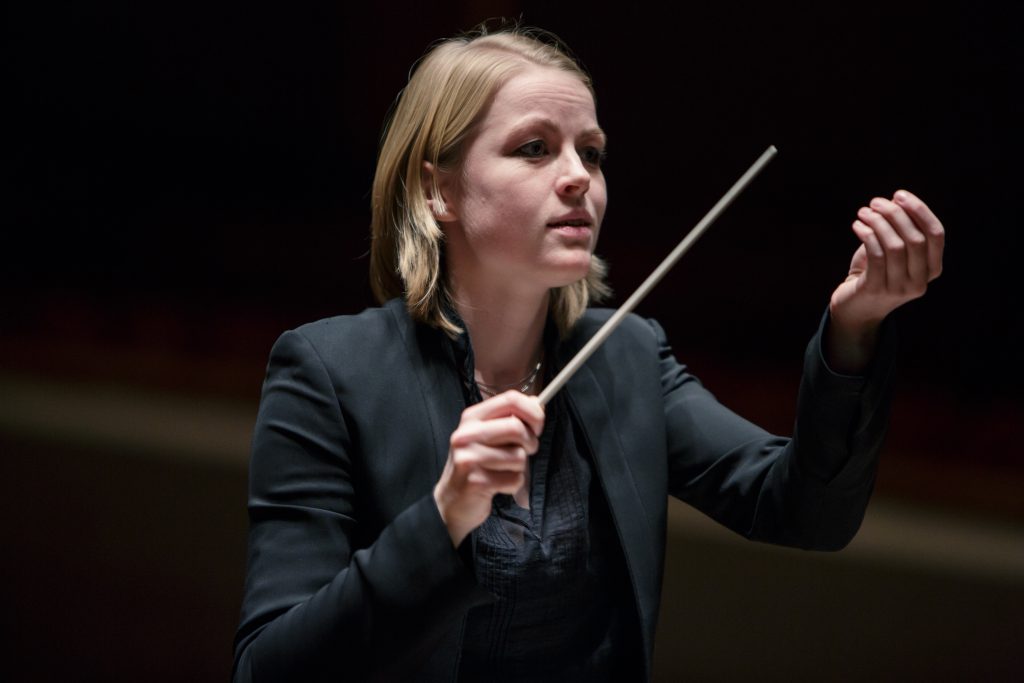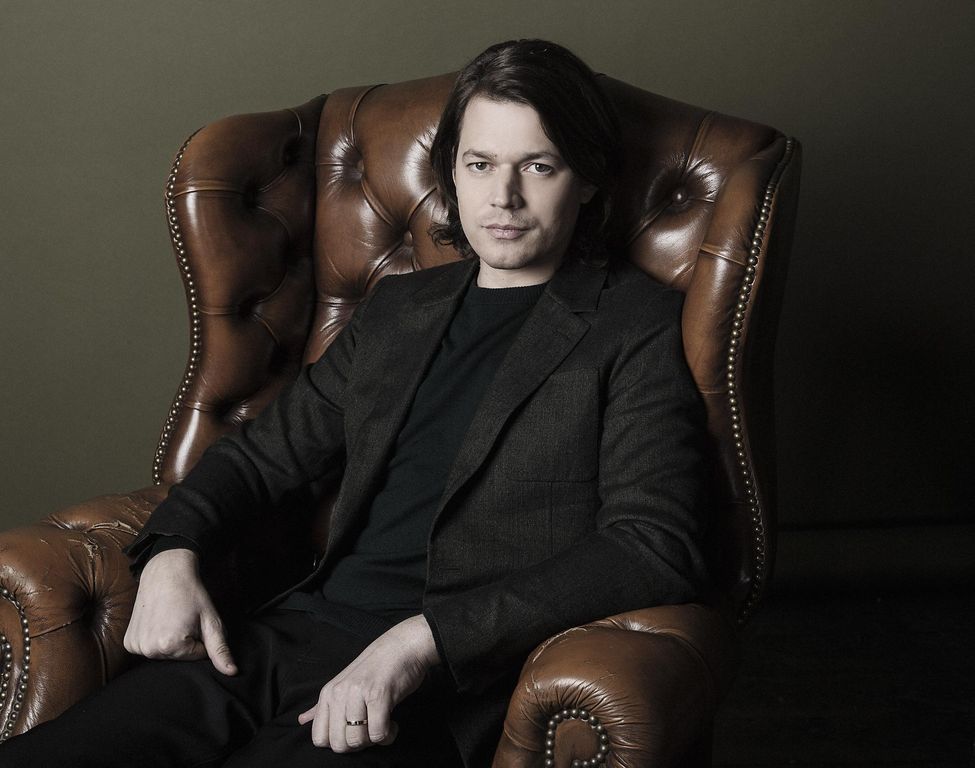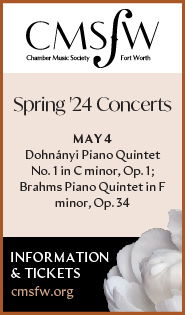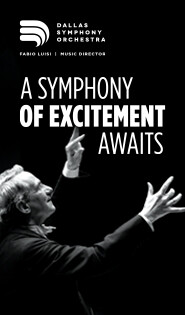Reinhardt gets Dallas Symphony back on track with German-Hungarian program

Ruth Reinhardt conducted the Dallas Symphony Orchestra in music of Beethoven, Hindemith and Kodaly Thursday night at Meyerson Center. Photo: Tracy Martin
The gruff, modernist muscularity of Hindemith’s Concert Music for Strings and Brass opened Thursday night’s concert of the Dallas Symphony Orchestra under Ruth Reinhardt at Meyerson Symphony Center. Reinhardt, the orchestra’s assistant conductor for two seasons concluding last spring, was clearly at home with the orchestra, and the musicians responded to her direction with an admirable precision that’s been missing in other performances this season.
The Hindemith work itself was a brave, interesting, and somewhat odd choice for a curtain raiser; written in 1930, it carries the towering polytonal darkness evident in much of the music of that era to an extreme degree. An arching lyricism eventually emerges from the dense textures here, but the overall impression left by Reinhardt’s performance leaned toward the work’s darker aspects.
The German-born Reinhardt followed, however, by reaching further back in the German symphonic repertoire for one of the beloved masterpieces of that canon, Beethoven’s Third Piano Concerto. The soloist, French pianist David Fray has built his reputation in the music of Bach and the Viennese classicists; together with conductor Reinhardt and the orchestra, he produced a luminous and life-filled rendition of the concerto.

David Fray. Photo: Francois Berthier
In the substantial opening passage for orchestra alone, Reinhardt continued her admirable collaboration with the orchestra to create a perfect balance of Classical-era sensibility and the place of the modern orchestra in a modern concert hall. Fray responded with a silken but beautifully projected lightness in the opening rising scale of the solo part. And, at the moment at which the cadenza of the first movement closes almost unexpectedly, Fray created a delightful sense of surprise and joy.
In the chorale-like opening of the Largo, Fray continued to find a perfect balance of clarity and resonance leading to the orchestra’s full-bodied response; in the Allegro Finale, he and Reinhardt once again discovered a lively energy, complete with pleasantly assertive accents, marrying elegance and energy. Sparkling scales and passagework mixed with gloriously powerful moments, beautifully backed by Reinhardt and the orchestra.
The post-intermission portion of the concert provided an odd pairing of Beethoven’s Overture to King Stephen with Hungarian composer Zoltan Kodaly’s Hary Janos Suite. The King Stephen Overture may well be regarded either as one of Beethoven’s most adventurous experiments in structure or as one of his least successful creations, leaving the listener breathless and perplexed at the rapid shifts from Beethovenian grandeur to what one might guess is deliberately banal frivolity. Reinhardt dived in devotedly, and the orchestra, as it had all evening, proved its mettle with precision and clarity.
Reinhardt’s approach to the Kodaly Suite, while likewise precise and energetic, was somewhat more varied in success. Her enthusiasm for strong accents and powerful fortes from the very beginning ultimately produced a heavy-handed predictability in this performance; Kodaly’s captivating lyricism emerged in full force, however, with particularly fine performances from Ronald Snider in the extensive cimbalom part and violist Ann Marie Brink in the extended obbligato of the third movement.
The program will be repeated 7:30 p.m. Friday and Saturday and 2:30 p.m. Sunday at Meyerson Symphony Center. mydso.com; 214-692-0203.


